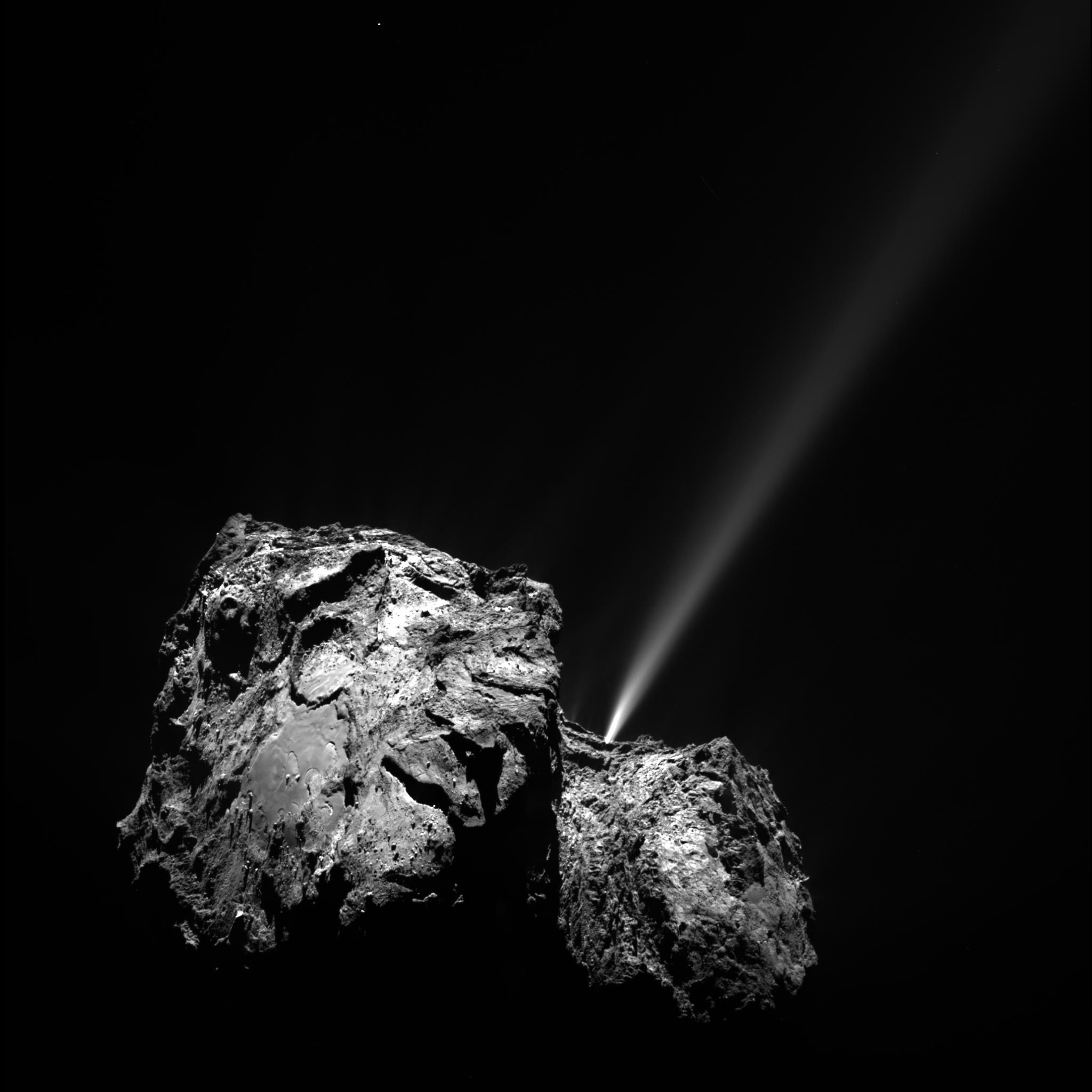Small Solar System Bodies - Space Science Faculty
Small bodies and Rosetta group

A current focus of the group is the analysis of images from the OSIRIS scientific cameras of the Rosetta mission. Current research topics are:
- Surface features of the nucleus and their interrelation with comet activity
- Properties of individually observed dust particles and implied information about the formation of the comet
- Chemical homogeneity of the nucleus and processes in the innermost coma from analysis of gas emissions
Further research topics at ESAC are:
- Detection of volatiles on asteroids and dwarf planet Ceres and their interpretation
- Surface properties of asteroids and their evolution with time
- Active asteroids
- The DART and Hera missions and scientific aspects of planetary defence
Further work on meteors is described on a separate website: http://cosmos.esa.int/meteor
The group is formed at ESAC by Michael Küppers, Sebastien Besse, Laurence O'Rourke, Björn Grieger, Julia Marin - Yaseli de la Parra , and Claudio Munoz-Crego
Some publications from the group:
Mapping a duck: geological features and region definitions on comet 67P/Churyumov-Gerasimenko
The Philae lander reveals low-strength primitive ice inside cometary boulders
Low Water Outgassing from (24) Themis and (65) Cybele: 3.1 μm Near-IR Spectral Implications
Characterization of the Agilkia region through discrete-element simulation of Philae's rebound
The Mystery of Ceres' Activity
Dwarf planet Ceres and the ingredients of life
Localized sources of water vapour on the dwarf planet (1)Ceres
Herschel and IRAM-30 m observations of comet C/2012 S1 (ISON) at 4.5 AU from the Sun
Large heterogeneities in comet 67P as revealed by active pits from sinkhole collapse
Activities in Europe related to the mitigation of the threat from near-Earth objects
The observing campaign on the deep-space debris WT1190F as a test case for short-warning NEO impacts
Distance determination method of dust particles using Rosetta OSIRIS NAC and WAC data
Identification of a primordial asteroid family constrains the original planetesimal population
NELIOTA: First temperature measurement of lunar impact flashes
Exogenous origin of hydration on asteroid (16) Psyche: the role of hydrated asteroid families
A Search for the Far-Infrared Ghost of C/2010 X1 (Elenin) with Herschel
Comet C/2013 A1 (Siding Spring) as seen with the Herschel Space Observatory
- Removed a total of (2) style text-align:justify;








































 Sign in
Sign in
 Science & Technology
Science & Technology